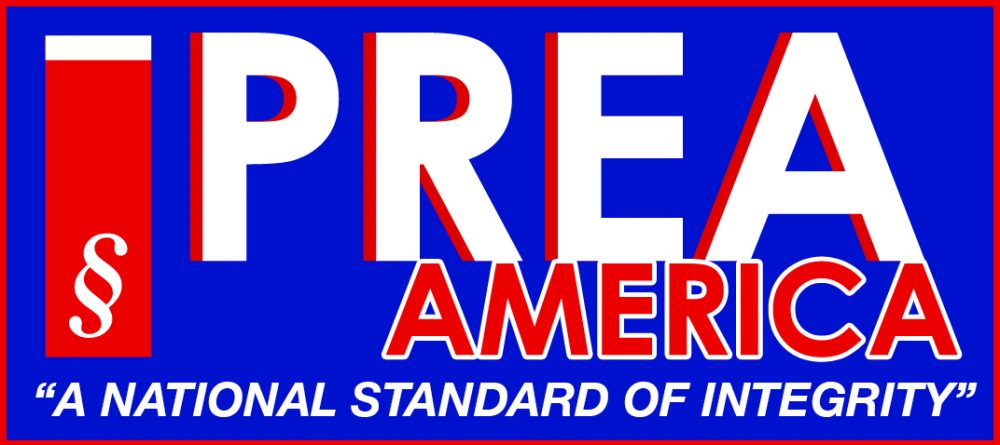
The Value of PREA Certification
PREA (Prison Rape Elimination Act) certification offers significant advantages for correctional facilities, enhancing both operational effectiveness and institutional security.
Key Benefits of PREA Certification:
Expanded Contract Opportunities: PREA certification can open doors to contracts with state, federal, and other entities that mandate compliance for their contracting facilities.
Enhanced Facility Safety: Implementing PREA standards directly contributes to a safer environment for both staff and those housed within the facility. As one booking supervisor noted, improved housing assignments following PREA implementation led to a “marked decrease in problems with inmates.”
Improved Communication and Trust: PREA fosters better communication between inmates and staff regarding safety concerns. A jail administrator with 25 years of experience praised PREA as the most effective tool he’d ever seen for encouraging inmates to report safety issues.
Stronger Legal Defense: Documenting PREA compliance through an audit provides certification of “Best Practices.” This can serve as a crucial legal defense should an issue arise.
Litigation Mitigation: Proactive PREA certification helps mitigate potential litigation by demonstrating a commitment to safety and compliance.
Don’t wait to protect your facility and staff. The benefits of legal compliance, greater safety, reduced litigation risk, and increased contract opportunities make PREA certification a vital step for any correctional facility. We offer comprehensive support, including consulting, training, and auditing, to help you verify and achieve full compliance.
We want you to be successful in documenting your PREA compliance. So PREAAmerica provides consulting to help you prepare for the audit process. Reaching PREA compliance will provide for a safer environment for inmates/residents and staff. Call us today!
Many people mistakenly believe “PREA is not required for my facility.”
117 STAT. 988 PUBPULIC LAW 108-79-SEPT. 4, 2003
(7) PRISON.-The term “prison” means any confinement facility., of a Federal, State, or local government, whether administered by such government or by a private organization on behalf of such government, and includes-
(A) any local jail or police lockup; and
(B) any juvenile facility used for the custody or care of juvenile inmates.
Additional clarification from the Department of Justice on the PREA Resource Center Website:
Q: Do the standards apply to locally operated facilities?
A: Yes. PREA standards apply equally to locally operated facilities, such as lockups, jails, juvenile detention centers, and locally operated residential community confinement facilities. The statute imposes certain financial consequences on states that do not comply with the standards. However, for local facilities or facilities not operated by the state, PREA provides no direct federal financial penalty for not complying.
If a local facility has a contract to hold state or federal inmates, however, it may lose that contract if it does not comply with PREA standards. If a governor should certify compliance, he/she must certify that all facilities under the state’s authority, including all local facilities the state contracts with to hold inmates, are in compliance. Furthermore, states that operate unified systems must demonstrate that all state-operated facilities, including jails, comply with the PREA standards.
Finally, all agencies, state or local, have obligations under federal and state constitutions to provide safety for individuals in their custody. While PREA does not create any new cause of action, private civil litigants might assert noncompliance with PREA standards as evidence that facilities are not meeting constitutional obligations.
Many Collaborating Organizations support PREA
- Abt Associates
- AEquitas
- American Correctional Association (ACA)
- American Jail Association (AJA)
- American Probation and Parole Association (APPA)
- American University Washington College of Law, Project on Addressing Prison Rape
- Association of State Correctional Administrators (ASCA)
- Center for Innovative Public Policies (CIPP)
- Commission on Accreditation of Law Enforcement Agencies (CALEA)
- Council of Juvenile Correctional Administrators (CJCA)
- International Community Corrections Association (ICCA)
- International Association of Chiefs of Police (IACP)
- Just Detention International (JDI)
- National Association of State Mental Health Program Directors (NASMHPD)
- National Commission on Correctional Health Care (NCCHC)
- National Institute of Corrections (NIC)
- National Sheriffs’ Association (NSA)
- Office of Juvenile Justice and Delinquency Prevention (OJJDP)
- Vera Institute of Justice (Vera)
- The Moss Group (TMG)


